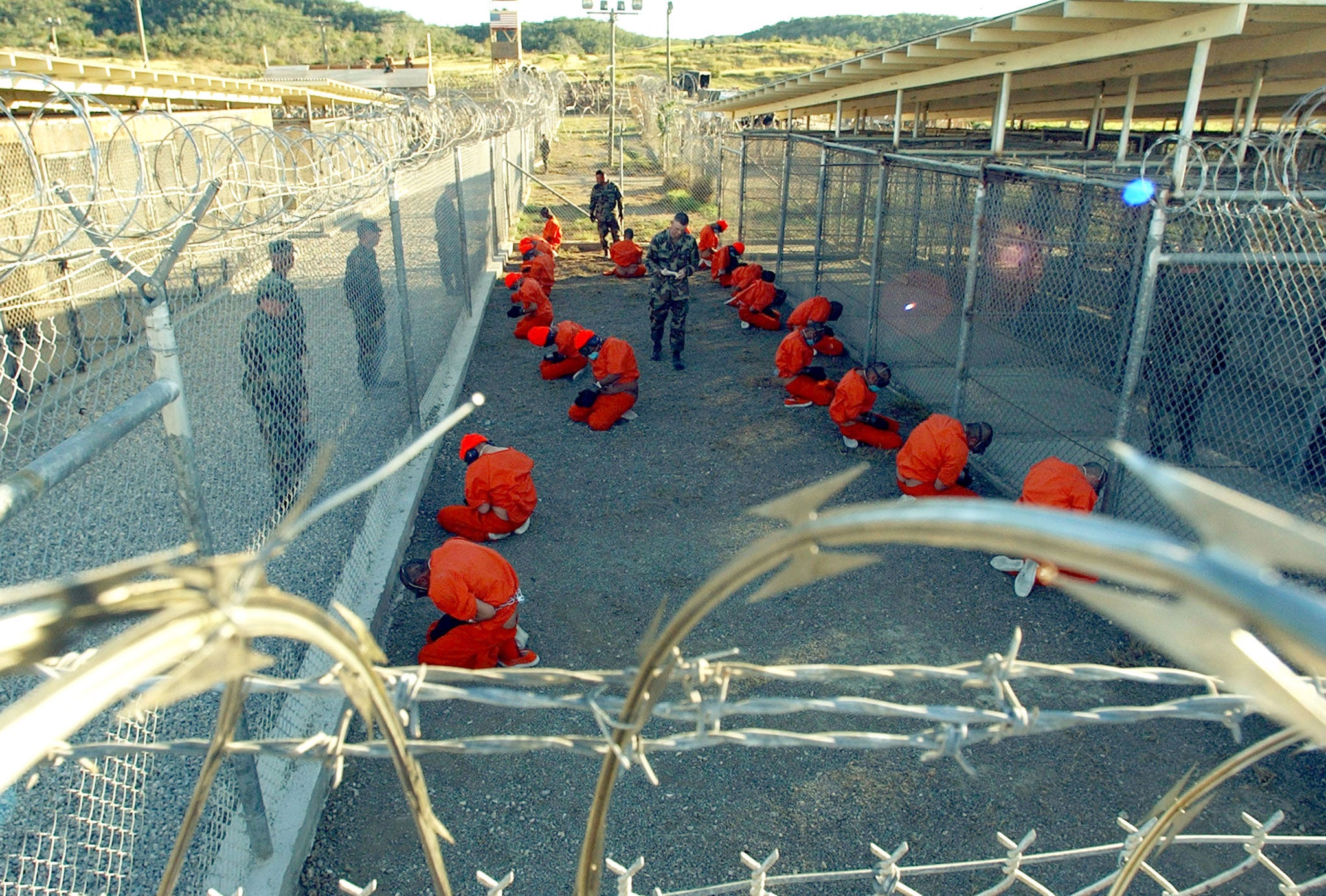Guantanamo Diary by Mohamedou Ould Slahi; edited by Larry Siems, book review
An account of life inside Guantánamo Bay makes for a tough, damning read

Your support helps us to tell the story
From reproductive rights to climate change to Big Tech, The Independent is on the ground when the story is developing. Whether it's investigating the financials of Elon Musk's pro-Trump PAC or producing our latest documentary, 'The A Word', which shines a light on the American women fighting for reproductive rights, we know how important it is to parse out the facts from the messaging.
At such a critical moment in US history, we need reporters on the ground. Your donation allows us to keep sending journalists to speak to both sides of the story.
The Independent is trusted by Americans across the entire political spectrum. And unlike many other quality news outlets, we choose not to lock Americans out of our reporting and analysis with paywalls. We believe quality journalism should be available to everyone, paid for by those who can afford it.
Your support makes all the difference.The style guide for this newspaper is long, with many rules designed to simplify the English language for readers. Writers who haven't read it (most) are forever causing the sub-editors to curse and to suck in the air sharply through closed teeth.
One of the most brutal rules is reserved for the convicted. Anyone found guilty of a crime not only loses his or her liberty, but in the pages of The Independent, any honorific is also unceremoniously removed.
The Right Honourable Chris Huhne, for example, once a Cabinet minister, becomes simply Huhne for the remainder of any story, rather than enjoying the privilege of being Mr Huhne like everyone else. He is treated like any other criminal, and there is no appeal in the court of The Independent's style guide.
Despite enduring a long, harsh sentence at the hands of an ordinarily law-abiding, civilised, sovereign nation, Mohamedou Ould Slahi remains Mr Slahi for the remainder of this review. He continues to be held at Guantánamo Bay, where he has been since 2002, and despite being tortured, and despite having his human rights ignored and his dignity savaged, Mr Slahi has not been convicted of any crime.
The fact that you are able to read his account of his time in America's most notorious prison is a testimony to his intelligence, his entrepreneurial spirit and determination.
Guantánamo Diary is the first account published of being in the prison by a serving inmate and it makes for extraordinarily grim reading. Anyone who has faith in American justice, the rule of law or in common human decency will be shocked by his account of his treatment.
Moreover, the West's narrative when it came to responding to the 9/11 attacks, that "we are better and more civilised than them", is disemboweled by this book.
Mr Slahi is a Mauritanian; he has an engineering degree and speaks four languages. The book was written in English – his fourth language – and it is articulate and precise.
Fighting in Afghanistan for the Mujahideen against the Soviet Union in the late 1980s – like many young Muslim men – he received instruction at the time from groups that would later become known as al-Qaeda. After living in Montreal for a while after the war, where he led prayers at a local mosque, he returned to West Africa.
It was in the weeks after the 9/11 attacks that he was arrested and questioned over what was known as the Millennium attack – a failed bid to blow up Los Angeles airport on New Year's Eve 1999/2000. The attacker had for a time been a member of the Montreal mosque and ergo, thought the CIA, Mr Slahi was a terrorist. Arrested in Senegal and then held in his native Mauritania, he was rendered to what became known as a "black site" in Jordan, where Mr Slahi says he was tortured by Jordanian agents. After that it was to Bagram and then Gitmo, to give the prison its cute nickname, on 4 August 2002.
There was nothing cute about Mr Slahi's treatment. The book describes the abuse meted out to him in detail. "'Blindfold the motherfucker if he tries to look …' One of them hit me hard across the face, and quickly put the goggles on my eyes, ear muffs on my ears, and a small bag over my head. I couldn't tell who did what. They tightened the chains around my ankles and my wrists; afterwards, I started to bleed. All I could hear was ––– cursing, 'F-this and F-that!' I didn't say a word, I was overwhelmingly surprised, I thought they were going to execute me.
"Thanks to the beating I wasn't able to stand, so ––– and the other guard dragged me out with my toes tracing the way and threw me in a truck, which immediately took off. The beating party would go on for the next three or four hours before they turned me over to another team that was going to use different torture techniques." This is but a typical passage that describes what Mr Slahi has endured.
The book was finished in 2005, and it has taken Mr Slahi's lawyers almost a decade of legal wrangles to get it on bookshelves. The holes in the text, as in the quotation above, are redactions insisted upon by the American authorities.
Barack Obama, now in the autumn of his presidency, came into office six years ago promising "hope" and "change". One promise was to close Guantánamo for good. That was four years after this book was finished and Mr Slahi remains there despite never having been charged, tried, convicted or sentenced. It must surely be a crime in itself.
Join our commenting forum
Join thought-provoking conversations, follow other Independent readers and see their replies
Comments